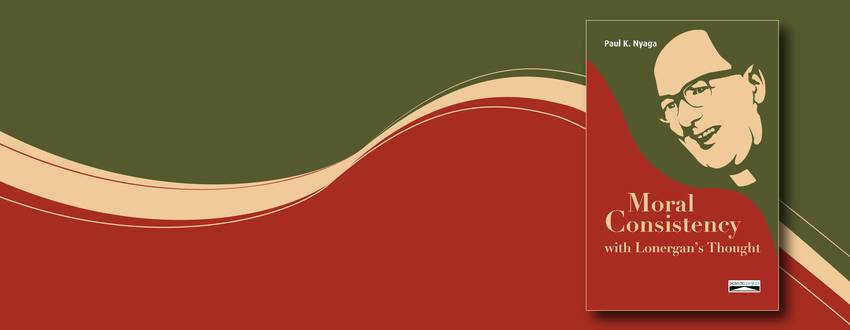News
Discover the book “Moral Consistency” written by Paul K. Nyaga

13 october 2023
Moral Consistency, by Paul K. Nyaga, a book which contains also Lonergan’s Thought
If a person is defined to be a philosopher, his thinking as a whole can not depend upon something else or someone. In fact, there has to be a basis within himself, he must have resources of his own, to which he can appeal in the last resort.
The value of self-appropriation is that it provides one with an ultimate basis of reference in terms of which one can proceed to deal satisfactorily with other questions.
Consistency, what does it really mean ?
Consistency and thinker
The term “consistency” has become really, in the contemporary sphere of social and human sciences, a catchphrase. A good philosopher, as a matter of common parlance, is a thinker who introduces his thought, systematically lays down his arguments and consistently carries it to its logical conclusion.
Also, the thinker has to make sure that there are no contradictions whatsoever in his arguments. If there is a case of contradiction, the process of argumentation begins. It is logical ton conclude that this type of work is very inconsistent.
In some other jobs such as lawyers, nurses or teachers, inconsistencies, may be source of losing a good reputation, or losing their jobs. In fact, consistency is sometimes highly respected and loved.
The definition of moral consistency
Some moral philosophers have described moral consistency as the absence of contradictions in a person’s moral living. Sometimes, this description has been called “the hallmark of ethics”. But what is ethics? Ethics is supposed to provide people with a guide of moral living and to do so it must be rational, and to be rational it must be free of contradiction.
Historical exploration of the notion of moral consistency
We can pick great periods in the history of philosophy to understand the evolution of the term “moral consistency”: the ancient, the medieval, the modern and the contemporary period. After, modern period, we shall look into the African notion of morality. In the contemporary period, we shall look at the question of self-appropriation as presented by Bernard Lonergan, which the key inspirer of the book “Moral consistency”, written by Paul K. Nyaga.
The Sophistry period : the Era of free choice
Natural or not to human beings ?
Morality is not natural to human beings, according to Glaucon, in the “Republic” of Plato. It was the Sophists who made the distinction between nature and the human law or convention. While in the Pre-Sophists era, there was no real developed conception yet of this distinction.
In fact, human beings and all the other creatures were believed to be subject to the laws of nature. The Sophists brought a radical distinction between the world of human beings and that of nonhuman beings. This was the beginning od the era of thinking, the era of free choice.
Free choice
In fact, the Sophists, were the ones to tell that there was a real distinction between what comes of itself and what is made from human convention. This period was also the landmark distinction which caused a kind of revolution in the field of morality.
John Rawls, puts it correctly; when we put nature and human beings together, human beings cannot be held responsible in the contemporary way of understanding the term. Human beings, unlike other animals, have authority over nature because of their reflective nature.
With the introduction of the concept of freedom, human beings, can now be held responsible of their free choices and also been deem accountable for their choices.
Socrates introduces the knowledge as a virtue
Socrate and the sophists
Socrates was a tough critic of the Sophists. As the cosmologists looked at the universe as undifferentiated reality. They did not make a substantive distinction between the human being and the rest of nature, however the Sophists, made this distinction.
Socrates made a large step beyond the Sophists, in a direction more humanistic. He is one of the most celebrated thinkers in the ancient Greek and claimed to be the most ignorant person at that particular time and space.
The ignorance of Socrates
The fact that it told himself, ignorant, earned him great respect and the Delphic Oracle declared him to be the wisest person in the entire Greek society. The “ignorance” of Socrates was interpreted as “Socrates irony” and he used it systematically and efficiently to educate the young people of Athens.
In fact, he taught people, that the proper way of living a worth life is to strive for the attainment of knowledge and wisdom. In fact, in the “Apology of Socrates”, he insists, that one has to avoid living the unexamined life because it is not worth living.
To know more about Socrates and the Sophists, you can read the book “Moral Consistency with Lonergan’s Thought” by clicking here.

